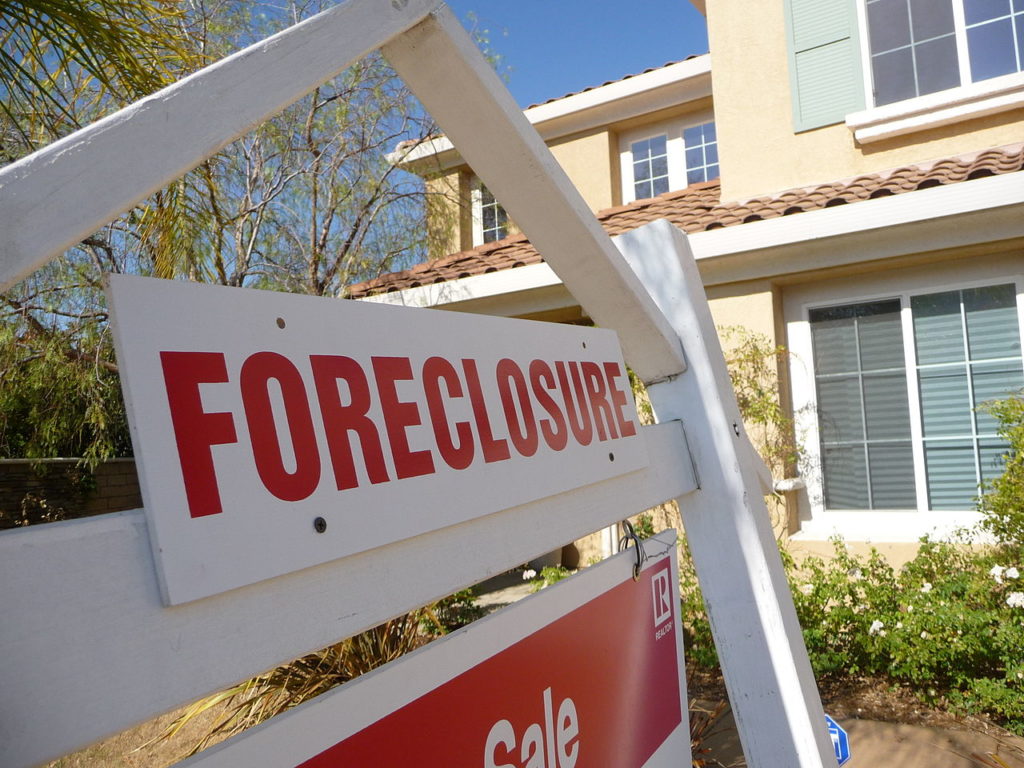One of the most important questions to address if you are trying to stop the foreclosure is, “How far behind in payments are you?” Besides owing for so many missed months, if your notice of default has been posted and the bank is proceeding with a foreclosure, you will now also have foreclosure fees included in the total amount owed.
Most banks will not wait much longer than 3 missed payments to start foreclosure proceedings. They know, statistically speaking, that it is very difficult for most anyone to come up with the funds to pay back 1 missed payment, let alone 3 or more.
Can you Stop Foreclosure in Houston?
In foreclosure you have up until the auction date to pay back the full balance of what’s owed on the property. Meaning you can reinstate your loan by sending in the missed payments, interest, fees, etc.; which would put your loan back on track.
If the loan goes through the foreclosure process, and then on to what’s known as a Trustee’s Sale, it’s gone. (Unless the Trustee rescinds the sale, which is rare).
So let’s go back to the question we get asked a lot:
“Should I take out a personal loan or tap into my retirement accounts to make up the missed payments?”
Here are factors to consider…
- Is your house underwater? Meaning, do you owe more than it’s worth? If it is underwater,
- How long will it take to break even?
- Is the house in excellent condition? Repairs or updates needed?
- If it’s a rental, does the property generate positive income? If so, how much?
- Where are these funds coming from? If you are tapping into a high-interest credit card, how are you planning on paying that back?
- If you tap into your retirement account and still lose the house, how are you planning on replacing those lost funds?
You can see that it’s not as cut and dry as simply coming up with the money to catch up on the loans. Another important factor is, can you really afford this house?
If the problem couldn’t be solved 6 payments ago, how are you planning on paying for it in the future on the same level of income?
Example 1:
In one scenario I had a couple that had a nice home that was slightly underwater. The wife had been in a bad car accident the year before and had not been working until she could get well. In the meantime, the house payments had fallen behind so they needed to sell.
We had started the paperwork to sell the property after reviewing their options, and within a few days she called me to let me know she accepted a job proposal she hadn’t expected to get! They were then able to afford to pay up the missed payments within her first paycheck and get back on track, so we cancelled the sale. Even though the house was slightly underwater, they found it best to keep the property for the long term and raise their family there.
Example 2:
In another scenario, I had a couple who were 6+ payments behind, the home was in fair condition with lot of repairs needed, income levels had dropped and the house was heavily upside down. They were expecting a settlement from an accident that happened years ago and wanted to know if they should use that to pay up the loan. I asked them to really consider what putting the majority of a settlement they had waited two years for towards a home that was in dire need of repairs, in foreclosure and had no equity would do for their overall financial situation. It may also be 10+ years before or if they broke even on the property, whereas they could take that money, put a down payment on a rental in good condition and save up for a house in the future. However, being so emotionally attached to the house, they decided to keep it and stay. Would you have?
Example 3:
For a final example, I had a client who’s rental property went into foreclosure. He owed about 10k in missed payments, lost about $100/month on the rental and wondering if he should sell his work trailer to make up for the payments. I asked him if it would affect his income to sell the work trailer, which he said that it would. I then questioned what his long-term strategy would be for that to hang onto a rental property that had no equity, lost him at least $1,200/year and would further contribute to lost income if he kept it. He realized after saying it outloud that the property would really never pay him back at this rate, and moved forward with the sale. Is that what you would have done, too?
It’s always smart to look into options if you are falling behind on payments, but I stress be mindful before taking out any more debt that is high-interest and/or high risk and affects your financial future.
Is it really worth it? That’s a question only you can answer for yourself. However, if you or someone you know is facing foreclosure and would like an outsider’s professional opinion on the subject, call APEX at 844-388-APEX(2739) today.
We’re here to help!
-APEX Home Buyers






